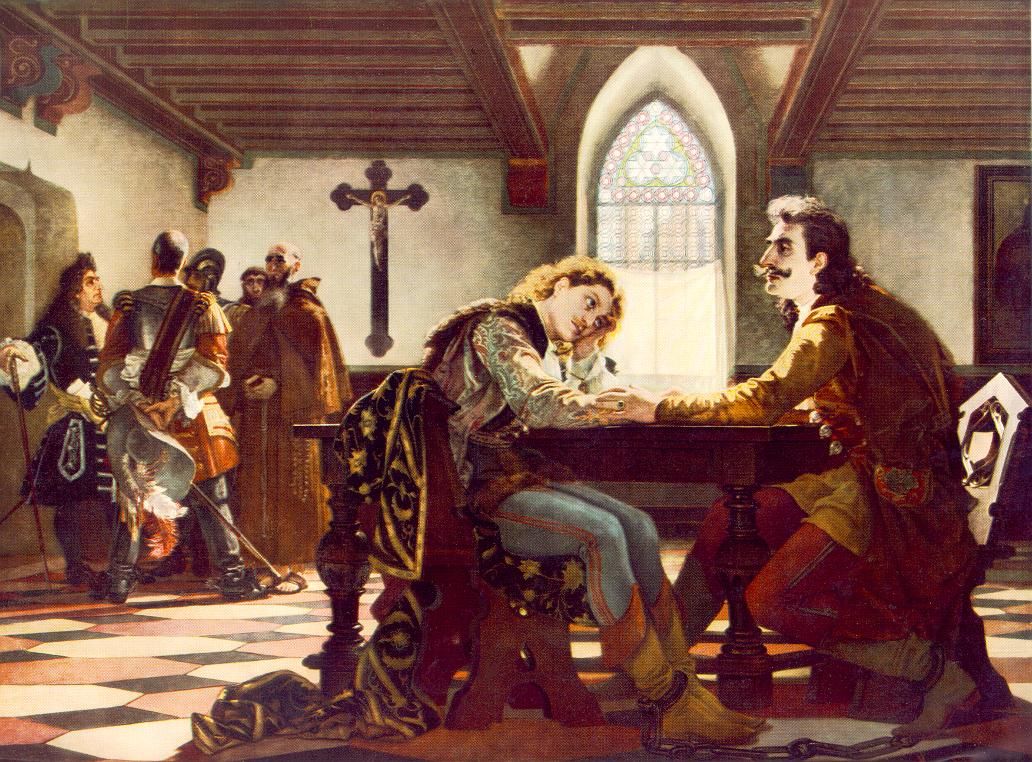Browse through Croatian history for this week, you may be surprised by what you read...
February 26
Atomsko sklonište (trans. Atomic Shelter) is a Croatian and former Yugoslav hard rock band, formed in Pula in 1977. The band is known primarily for its strong anti-war lyrics. The band's history begins in 1968, when a play entitled Atomsko sklonište and directed by Boško Obradović premiered in the People's Theatre in Pula. The play featured a choice of the world anti-war poetry, including two of Obradović's poems. He offered his lyrics to a group of musicians and the band Atomsko Sklonište was officially formed on February 26, 1977. The band recorded albums in France, England and United States, with the last one released in 1995. Their song "Chinese Bike" from a 1992 album entered the popular American Billboard Hot 100 for singles.
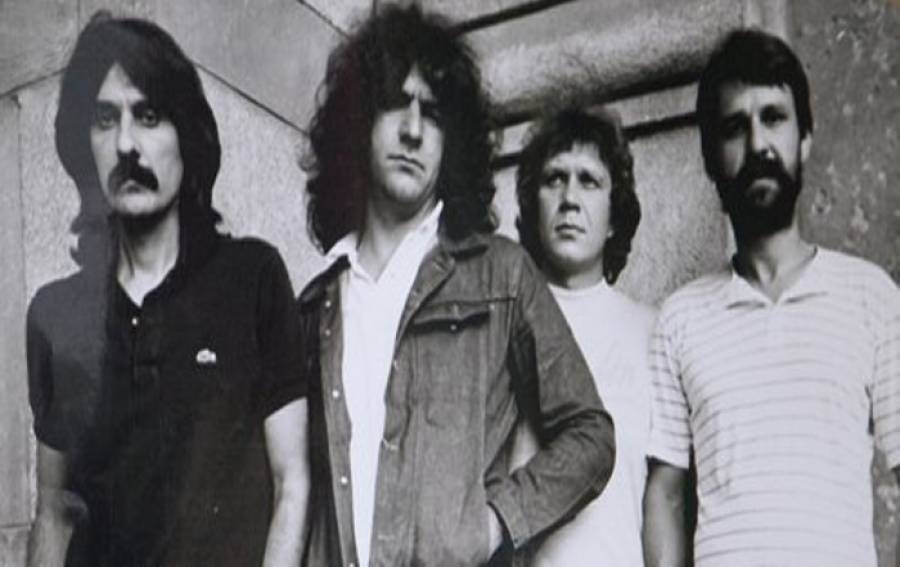
February 27
Bloody Sabor of Križevci was an organised killing of the former Croatian ban Stephen II Lackfi and his followers by King Sigismund, in Križevci, Croatia on 27 February 1397. After the disastrous Battle of Nicopolis, King Sigismund called for the Sabor (parliamentary assembly) in city of Križevci and issued a written guarantee stating he would not attempt personal revenge on the opponents or harm them in any way. But, he organised the killing of the Croatian Ban Stephen Lackfi and his followers for supporting the opponent king candidate Ladislaus of Naples. The Croatian law dictated that no one could enter the Sabor with arms, so Ban Lackfi and his supporters left their arms in front of the church. Lackfi's supporting troops also remained outside the town. The king's supporters, on the other hand, were already in the church, fully armed. In the turbulent debate that followed, the king's supporters accused Lackfi for treason in the Battle of Nicopolis. Harsh words were used, fight started, and the king's vassals pulled their swords in front of the king, gutted Ban Lackfi and the supporting nobility. Two days later Sigismund issued the famous charter by which the city Čakovec, Međimurje and other estates of Stephen Lackfi were donated to the king’s loyal subjects.
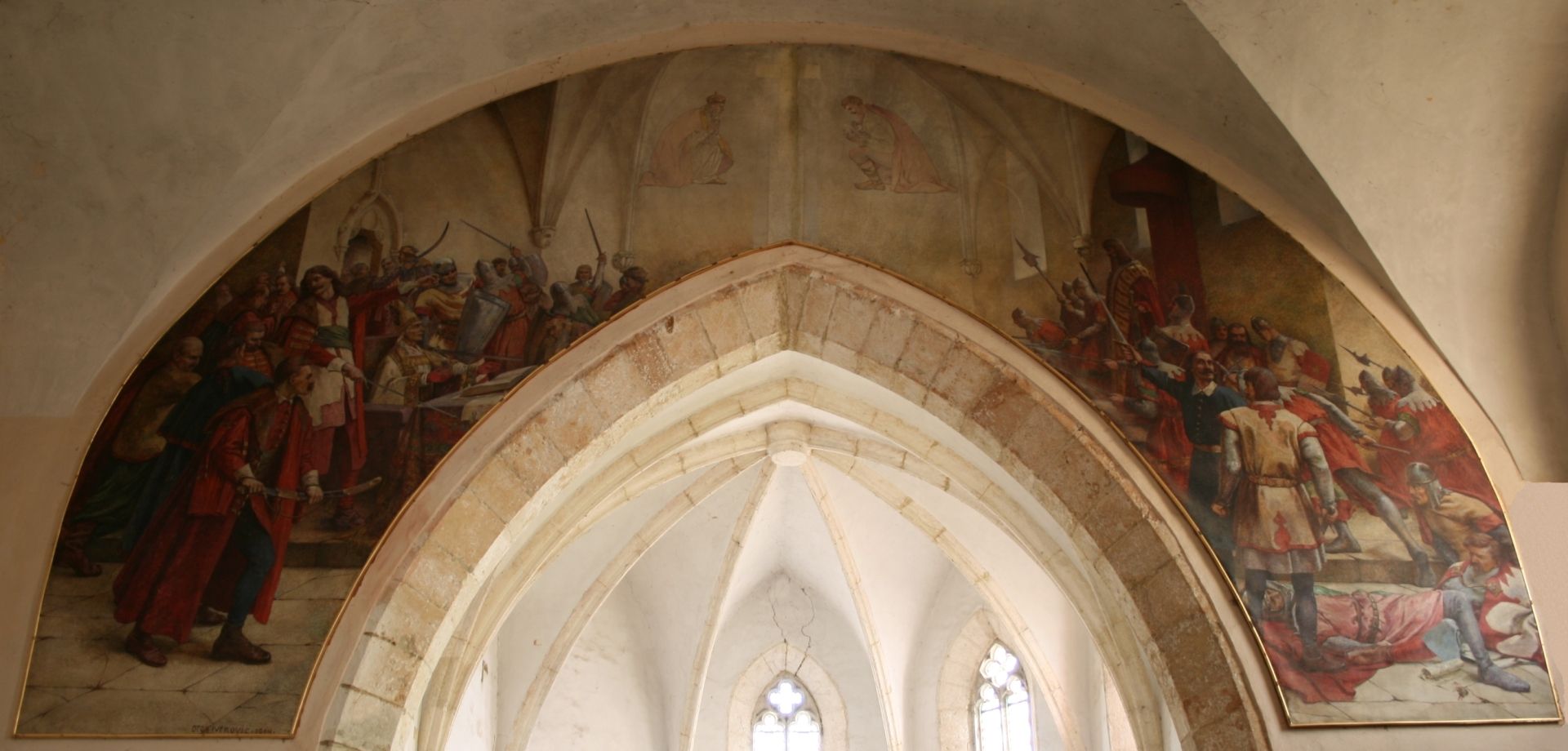
February 28
Mirza Džomba, born on this day in 1977, is a retired Croatian handball player, World champion and Olympic champion. He played for RK Zamet, RK Zagreb, Fotex Veszprém, BM Ciudad Real and Vive Targi Kielce before retiring in 2011. He was also a member of the Croatia national handball team whom he represented from 1997 to 2008. He holds the national team's top goal scorer record with 719 goals. He was part of the golden generation that won the 2003 World Championship and 2004 Summer Olympics. He is noted by many critics as one of the best right wings of all time. In 2013, Džomba was awarded the best right wing in the history award of the EHF Champions League by the European Handball Federation. Džomba has also played in six EHF Champions League finals while winning one with Ciudad Real. Among other awards he was nominated three times for the IHF World Player of the Year award reaching third place in 2004 and 2005, second place in 2006.
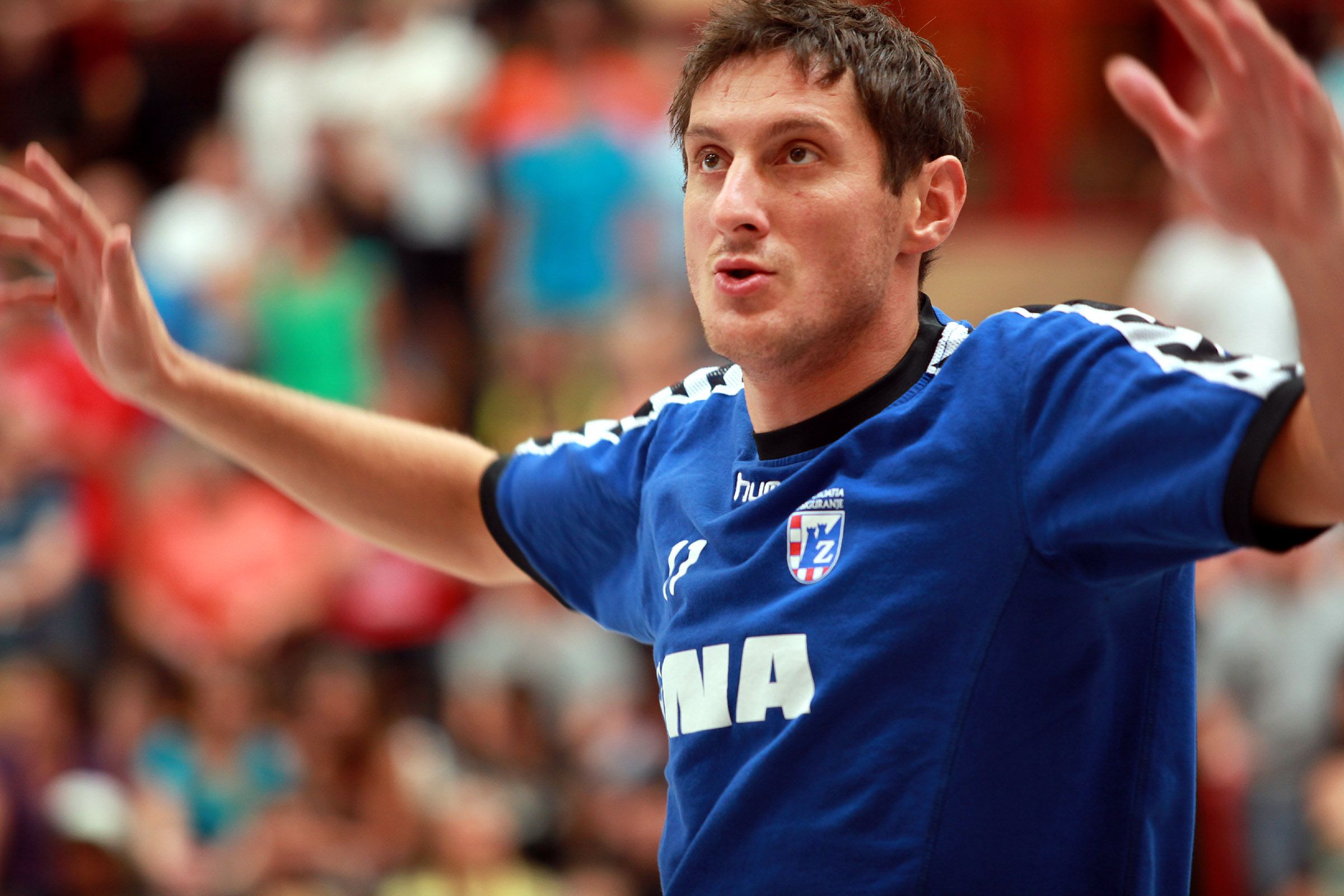
March 1
Narodni list (people's paper) is an independent Croatian weekly newspaper published in Zadar, the oldest such issue in Croatia. Narodni list, being independent, has a reputation of writing about things other newspapers dare not touch, such as corruption and nepotism among politicians, which often includes writing about organized crime. The first issue of Narodni list was published on March 1, 1862, as a Croatian-language part of the Italian-language newspaper Il Nazionale. Since 1876, Narodni list is published entirely in Croatian language, playing an important role in the unification of Dalmatia and Croatia. From 1920 to 1946 Narodni list was not published due to Italian fascist government of Zadar and Dalmatia. After the war, Narodni list began publishing again. At the time there was another Narodni list, daily newspaper published in Zagreb, so the Zadar newspaper was forced to briefly change the name to Glas Zadra (the voice of Zadar). After the newspaper from Zagreb ceased to exist, Narodni list recovered its name.
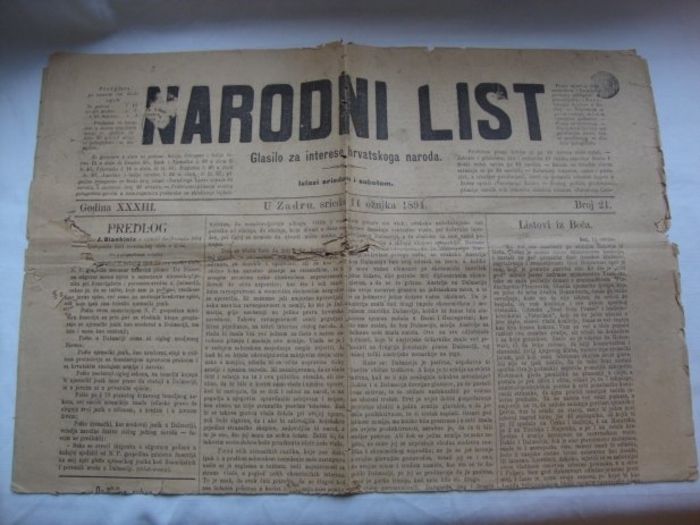
March 2
The Albona Republic was a short-lived self-governing republic that was proclaimed by miners from Istrian city of Albona (modern day Labin) on March 2, 1921, during a mining strike. It was created in what has been described as the world's first anti-fascist uprising. With the collapse of the Austro-Hungarian Empire following the end of the First World War, using the weakened position of the regions that were once under the rule of the Empire, Italy managed to capture and revitalize the regions of Istria and parts of Dalmatia, and exploit the population and economic potential of the occupied territories. Before they took over in Italy, fascists occupied headquarters of the Workers' Committee in Trieste in 1921, lit it on fire and attacked representatives of the Raša Mining Trade Union. With regard to this event and the former exploitative relationship with mine workers of Labinština mine, a general strike of about two thousand miners broke out. Miners proclaimed the republic in the occupied mines under the motto 'Kova je naša' (mine is ours), organized a government and the so-called red guard as a protection from the fascists and started to manage the production in mines by themselves with the support of a part of farmers. On April 8, 1921, Italian administration in Istria decided to suppress the republic using military force, and eventually succeeded after suppressing the strong resistance of the miners.
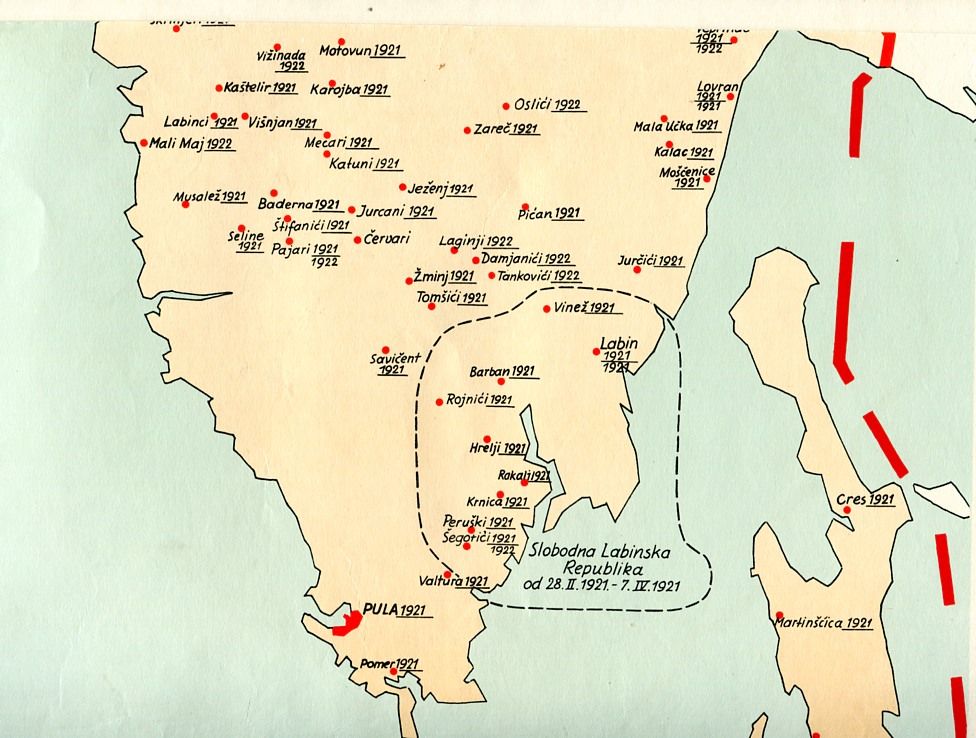
March 3
Born on this day in 1927, Josip Klima was a Croatian violinist and music teacher. Affectionately called Pepi, Klima completed violin studies under Vaclav Huml at the Music Academy in Zagreb. From 1951 to 1953 he studied at the École Normale de Musique in Paris. On several occasions he was the opera concert director of the Croatian National Theater in Zagreb and the Zagreb Philharmonic Orchestra. Klima presented to Croatian and global concert audiences numerous pieces by Croatian composers, often enticing them to write new pieces for him of his quartet. From 1959 to 1962 he was a professor at the National conservatory in Cairo, also teaching violin from 1978 until his retirement at the Zagreb Music Academy.
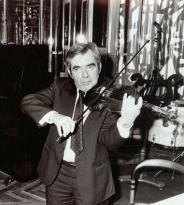
March 4
Fran Krsto Frankopan, born on this day in 1643, was a Croatian baroque poet, nobleman and politician in the 17th century. He is remembered primarily for his involvement in the failed Zrinski-Frankopan conspiracy. He was a Croatian marquis, a member of the Frankopan noble family and its last male descendant. Living in an area bordering on several Croatian dialects, Frankopan mainly wrote his poetry in the Kajkavian-ikavian dialect of the Croatian language. Along with Petar Zrinski, his brother Nikola, Fran Krsto Frankopan and his sister Katarina, contributed greatly to 17th century Croatian poetry and literature. Marquis Fran Krsto Frankopan and his brother-in-law Ban (viceroy) Petar Zrinski were both outstanding statesmen, warriors and writers, among the most beloved figures in the history of Croatia. They had great successes in liberating the areas occupied by the Ottoman Turks. However, the Viennese Military council, instead of supporting them to free the rest of the Hungarian and Croatian lands, signed a shameful peace treaty with the Ottomans, by which the liberated territories had to be given back to them, causing Frankopan and Zrinski to rebel against the king, Leopold I. The result of the rebellion against Vienna was a cruel public decapitation of Zrinski and Frankopan in Wiener Neustadt near Vienna in 1671. The remains of Fran Krsto Frankopan and Petar Zrinski were buried in the Cathedral of Zagreb in 1919. The portraits of Frankopan and Zrinski are depicted on the obverse of the Croatian 5 kuna banknote, issued in 1993 and 2001.
